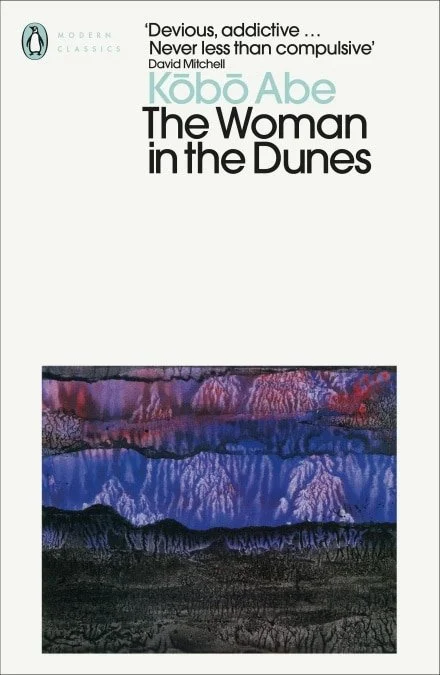Woman in the Dunes – Kōbō Abe
“Everything depends on the attitude one takes in a given situation.”
Magnetic. Surreal. Disturbingly beautiful.
I haven’t read a book like this in a very long time. From the first pages, it pulls you in like quicksand—you just want more and more, constantly wondering what will happen next.
On the surface, it feels like a story about captivity, maybe even Stockholm Syndrome. But to me, it’s more about what it means to find purpose in absurd, unbearable circumstances—and how frighteningly adaptable we are to lives we once hated.
The main character is a man chasing significance. He wants to be remembered, to discover a rare insect that will earn him fame. That obsessive pursuit leads him to a remote village—and straight into a trap. He becomes a prisoner, sharing a house at the bottom of a sand pit with a woman who lost her family. His prison is built from the very thing he came to admire: sand. But this sand isn’t poetic or peaceful—it’s invasive, destructive, impossible to control.
“Lecz wszystko zależy od postawy, jaką człowiek przyjmuje w danej sytuacji.”
Everything depends on the attitude one takes in a given situation.
In this village, survival depends on communal effort. If you don’t shovel sand, your house collapses—and when your house collapses, your neighbor’s does too. A clear metaphor for Japanese values around shared responsibility and the weight of societal expectations.
At first, he resists. He tries to escape again and again. But as time passes, he adapts. He stops obsessing over freedom and starts seeking meaning: in work, in survival, even in his relationship with the woman who shares his prison.
“Na pewno, w pracy jest coś niezwykle ważnego dla człowieka, co pozwala mu znosić czas bezsensownie upływający.”
There is something deeply important in work that helps a person endure the meaningless passing of time.
Reading this, I caught myself thinking about the “sand pits” we all build for ourselves—routines, expectations, obligations. At first they feel unbearable, but over time we get used to them, maybe even find purpose in them. Is that resilience, or resignation?
This book asks the hardest questions:
What is freedom?
Is it the ability to go wherever you want?
Or is it the power to find meaning, even in confinement?
It’s disturbing, beautiful, and unforgettable. And if you’re willing to be unsettled—and maybe rethink your own definition of freedom—you’ll find it magnetic too.
